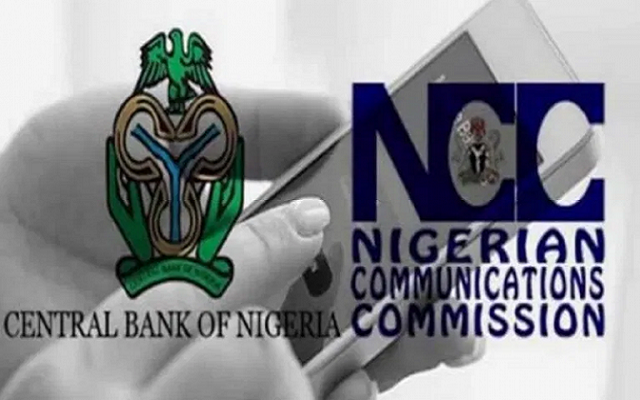ROMMY IMAH, in this article, explains Nigeria’s new End User Billing (EUB) model for USSD banking, which shifts charges from bank deductions to airtime billing. Backed by the NCC and CBN, the policy boosts transparency, empowers users, and settles bank–telco disputes. Discover what it means for mobile banking in Nigeria.
A New Policy to End Long-Standing Disputes
In a landmark shift aimed at resolving a long-standing dispute between banks and mobile network operators in Nigeria, the Nigerian Communications Commission (NCC) has introduced a new policy requiring that charges for Unstructured Supplementary Service Data (USSD) services be deducted directly from users’ airtime rather than their bank accounts.
This policy, known as the End User Billing (EUB) model, was officially implemented beginning Tuesday, June 3, 2025, with banks such as the United Bank for Africa (UBA) informing their customers of the change.
How EUB Empowers Mobile Banking Users
The EUB model is a customer-centric approach that empowers mobile banking users to have direct control over their transaction charges. Traditionally, when customers used USSD codes for banking services, the charges were automatically deducted from their bank accounts. This often led to confusion and complaints over unexplained deductions, inaccurate billing, and a lack of transparency in transaction costs.
Under the new model, however, charges are debited from users’ airtime balances, just like regular phone calls, SMS, or data usage. This move aligns with the practice already familiar to users in other mobile transactions and promotes greater clarity and predictability.
Why the EUB Model Was Introduced
The motivation behind the introduction of the EUB model stems from the need to improve customer experience and reduce the persistent friction between banks and telecom operators. Over the years, disagreements over who should bear the cost of USSD services resulted in service disruptions and a build-up of unpaid debts reportedly owed by banks to mobile network providers.
The Central Bank of Nigeria (CBN) and the NCC jointly approved the EUB framework to eliminate these bottlenecks while also enhancing service efficiency and financial inclusion.
Benefits of EUB to Consumers
With the EUB in place, mobile banking users can now see and understand what they are paying for, as charges appear immediately on their airtime balance after a USSD session. This transparency removes the mystery surrounding bank deductions, fostering trust in digital financial services. Moreover, users retain the option to opt in or out of using USSD for banking transactions, allowing them to choose the platform that best suits their preferences.
Regulatory Safeguards and Cost Control
To protect consumers, both the NCC and the CBN have mandated that banks must inform their customers before switching to the EUB model. The regulators have also ensured that the USSD session cost remains fixed at ₦6.98 per session, offering better value when compared to the segmented rate of ₦1.63 per 20 seconds for other services. A typical session lasts up to 120 seconds, which provides ample time to complete transactions without incurring multiple charges.
Support Channels for Users
Consumers experiencing any challenges while using USSD platforms are advised to contact the appropriate service providers. For access-related issues, users should reach out to their mobile network operators.
For issues that arise during transactions—such as incomplete transfers or failed verifications—customers should contact their respective banks. In the event of a system outage, both banks and telecom operators are obligated under regulatory guidelines to notify users promptly.
Measures to Prevent Double Billing
Concerns over potential double billing have also been addressed. The EUB model is structured to prevent users from being charged twice for a single transaction. Banks are prohibited from deducting USSD fees once the EUB model is active, and only mobile network operators are authorized to apply the standard airtime deduction.
Consumers will also receive an activity summary at the end of each session to ensure they know exactly what has been charged. Any instances of duplicate charges should be reported immediately to the CBN using the designated complaint channels.
Regulatory Oversight and Bank Readiness
The transition to the EUB model is being closely monitored by the regulators. The CBN and NCC have set clear conditions that must be fulfilled before a bank can commence charging users under the new system.
These conditions include the completion of technical integration processes, comprehensive testing, and the signing of binding Service Level Agreements (SLAs) to guarantee service quality and customer protection.
Until these formalities are concluded, individual banks will not begin deducting airtime for USSD services and are expected to communicate their specific go-live dates directly to their customers.
A Positive Shift for Digital Banking
In summary, the introduction of the End User Billing model represents a significant improvement in Nigeria’s digital banking landscape. It enhances user control, promotes billing transparency, and resolves industry-wide disputes that have long hindered service delivery.
While the transition may present short-term adjustments for banks and telecom operators, the long-term benefits for consumers are clear—greater convenience, fewer billing disputes, and a better overall experience in mobile banking.

